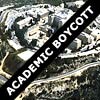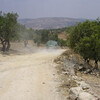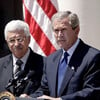
At the UN, Palestinian democracy tests American and Israeli limits
25 May 2005
Last week, an obscure UN body called the Committee on Non-Governmental Organizations decided to “defer” the application from the Badil Resource Center, a Palestinian organization working for Palestinian refugee rights based in Bethlehem. Badil was asking for “consultative status” that would allow it to make statements at official UN gatherings. The committee was supposed to decide if Badil’s work was consistent with the purposes of the UN. Germany demanded that Badil provide a copy of every statement it has ever made on terrorism. The US demanded to hear Badil’s position on the land issue in the Israeli-Palestinian conflict. Then the US asked if Badil had anything to do with the International Solidarity Movement. Read more about At the UN, Palestinian democracy tests American and Israeli limits








